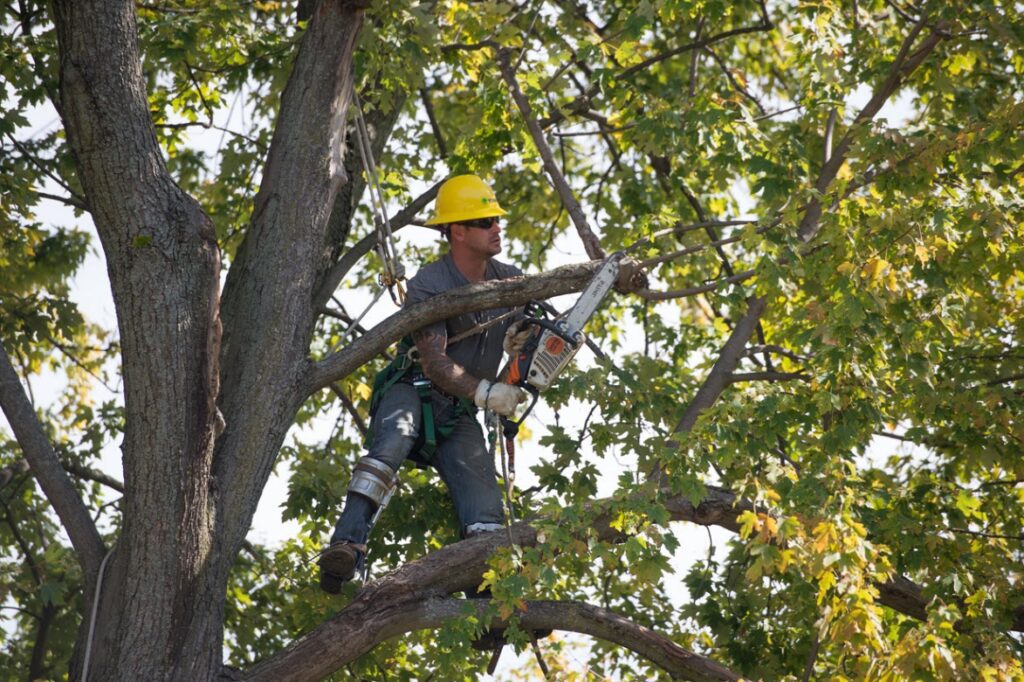Landscaping, an industry involving the modification and beautification of outdoor spaces, is not without its hazards. Engaging in Landscaping Safety Training is crucial for professionals in this field. This form of training encompasses various aspects, including the proper use of landscaping equipment, understanding of hazardous materials, and techniques for safe lifting and digging. Midway through a typical Landscaping Safety Training course, participants learn about the risks of landscaping tools, such as lawnmowers, trimmers, and chainsaws. These sessions also cover first aid procedures pertinent to common injuries in this line of work. Recognizing the signs of heat exhaustion and dehydration, especially during the warmer months, is another key focus area, ensuring workers can safely perform their duties in various environmental conditions.
The Importance of French Language Safety Training:
In regions where French is a widely spoken language, French Language Safety Training becomes essential to workplace safety protocols. This type of training is tailored to ensure that non-English speaking workers receive the same safety instruction as their English-speaking counterparts. Halfway into a French Language Safety Training program, the content typically includes translations of standard safety guidelines and procedures, making them accessible to French-speaking employees. This approach promotes inclusivity and significantly reduces the risk of accidents due to language barriers. Additionally, providing safety instructions in an employee's native language demonstrates a company's commitment to its workforce's well-being and professional development, fostering a workplace culture of safety and respect.
Integrating Landscaping Safety Training with Language Needs:
Integrating Landscaping Safety Training with language-specific needs, such as offering French Language Safety Training, is a strategic approach to workplace safety. This integration ensures that all landscaping professionals, regardless of their primary language, clearly understand safety protocols. Midway through such integrated training, the focus is often on translating landscaping safety terms and procedures into French. This method ensures that French-speaking employees are aware of the potential hazards in their work environment and understand the measures they need to take to mitigate these risks. By catering to the linguistic diversity of the workforce, employers can create a safer, more efficient, and inclusive work environment.
Benefits and Outcomes of Comprehensive Safety Training:
The benefits of comprehensive safety training, encompassing both Landscaping and French Language Safety Training, are manifold. Halfway through such a comprehensive training program, employees learn about safety practices and develop a deeper understanding of the importance of safety culture in the workplace. This dual focus on specific industry hazards and language accessibility ensures that all employees can work safely and effectively, regardless of their language proficiency. The outcomes of such training are significant: reduced workplace accidents, improved employee morale, and enhanced compliance with occupational health and safety regulations. Additionally, this approach to safety training can lead to better job performance, as employees are more confident and competent in their roles, knowing they have the knowledge and resources to work safely.
Conclusion:
Integrating Landscaping Safety Training with French Language Safety Training represents a commitment to safety and inclusivity in the workplace. It acknowledges the diverse linguistic needs of the workforce while ensuring that all employees have the necessary knowledge to navigate the risks associated with landscaping work. Employers looking to implement such comprehensive safety training programs can explore resources and courses available at onlinesafetytraining.ca, where a range of tailored safety training solutions are offered to meet the specific needs of various industries and language groups. By investing in such training, companies comply with safety regulations and demonstrate a profound commitment to their employees' well-being and professional growth.
For additional data, visit our site: -
side by side all terrain vehicles course

